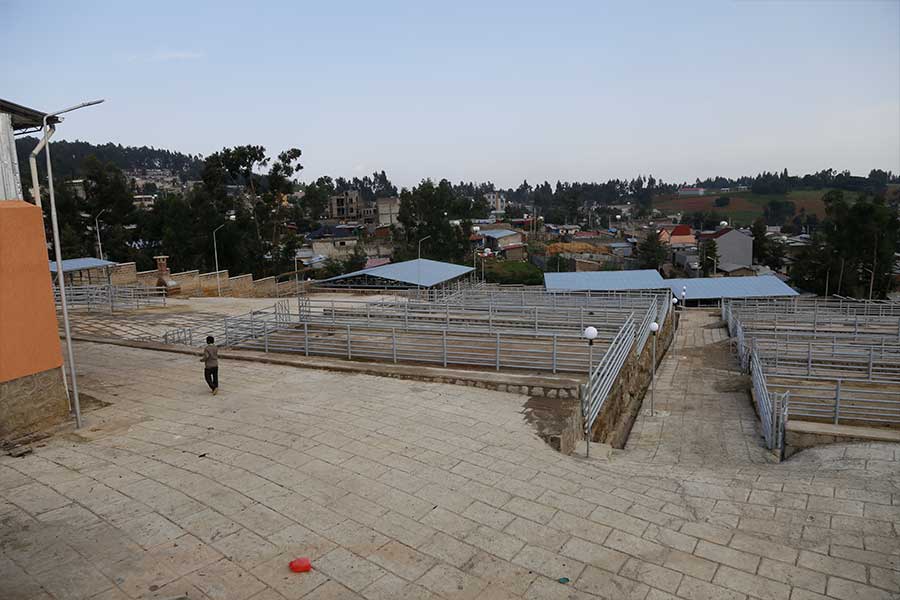
Oct 30 , 2021
By HAWI DADHI
Businesses taking loans of above 25,000 Br from non-financial institutions will be required to authenticate the borrowing before an officer of the Documents Authentication & Registration Agency if a directive in the making by the Ministry of Revenues is approved.
This will change the practice where tax officers do not recognise borrowing exceeding 500 Br as legal transactions both for the lender and receiver before they are authenticated. The limit was derived from the civil code, which was ratified decades ago. The threshold has been adjusted to 25,000 Br as the original value does no longer hold the same value today., according to Abere Asfaw, legal director at the Ministry.
The Ministry has drafted a tax accounting directive that will change this and make it mandatory for category A and B taxpayers. Taxpayers under category C may choose to authenticate their loans. Businesses are categorised based on their annual gross revenue, reporting more than one million Birr designated as category A taxpayers. Category C taxpayers have a yearly turnover of less than half a million Birr.
Businesses that want to authenticate loans will go through a process that takes less than half an hour, according to Muluken Amare, director of Documents Authentication & Registration Agency.
“The process entails checking the legality of the agreement and verifying identification cards,” he said.
A little over 7,000 personal and business loan agreements had been authenticated last year.
Business owners and auditors strongly contend the draft, claiming the minimum amount businesses can borrow without authentication should be much higher.
According to Aster Solomon, a businesswoman and chairperson of the Addis Abeba Hotel Owners' Association, it is a tiny amount to make any difference for many businesses.
“The authentication process hinders ease of doing business,” she told Fortune.
Borrowing is listed under liabilities on balance sheets, but some businesses use unauthenticated borrowing to justify unhealthy transactions.
Abraham Zewdi, head of an accounting firm, believes the Ministry is reasonable to introduce a more relaxed requirement. He, however, has urged tax officials to reconsider increasing the amount to 100,000 Br.
Not everyone is on the same page. The damage this may cause small businesses without access to finance outweighs its merits, experts fear.
Henok Tadesse, a tax and financial advisor and a charted accountant involved in the industry for 17 years, questions the introduction of the requirement. He instead would like to see tax officials focus on broadening the tax base.
"They can broaden the tax base, introducing new categories such as inheritance tax," he said.
Officials at the Ministry insist that the procedure was introduced in the interest of business owners and the state.
"If people keep coming up with unauthenticated loans, it'll delegitimise the tax system," said Abere.
If taxpayers report loans not authenticated in their accounts, the amount they add would be subject to taxation.
This year, the federal government has planned to mobilise 334 billion Br in taxes, 145 billion Br higher than it collected last year.
Yohannes Woldegebriel, a law expert and former public prosecutor, raises concerns about the directive's legality. The Ministry cannot impose what is not stipulated in the Civil Code, which asserts if a loan sum lent exceeds 500 Br, the contract has to be proved only through writing or an oath taken in court.
"The commercial code doesn't state that obligation either," said Yohannes.
PUBLISHED ON
Oct 30,2021 [ VOL
22 , NO
1122]

Radar | Sep 18,2021

Radar | Jul 23,2022

Fortune News | Jul 13,2020

Covid-19 | Apr 04,2020

Radar | May 11,2019

Dec 22 , 2024 . By TIZITA SHEWAFERAW
Charged with transforming colossal state-owned enterprises into modern and competitiv...

Aug 18 , 2024 . By AKSAH ITALO
Although predictable Yonas Zerihun's job in the ride-hailing service is not immune to...

Jul 28 , 2024 . By TIZITA SHEWAFERAW
Unhabitual, perhaps too many, Samuel Gebreyohannes, 38, used to occasionally enjoy a couple of beers at breakfast. However, he recently swit...

Jul 13 , 2024 . By AKSAH ITALO
Investors who rely on tractors, trucks, and field vehicles for commuting, transporting commodities, and f...

Jun 28 , 2025
Meseret Damtie, the assertive auditor general, has never been shy about naming names...

Jun 21 , 2025
A well-worn adage says, “Budget is not destiny, but it is direction.” Examining t...

Jun 14 , 2025
Yet again, the Horn of Africa is bracing for trouble. A region already frayed by wars...

Jun 7 , 2025
Few promises shine brighter in Addis Abeba than the pledge of a roof for every family...